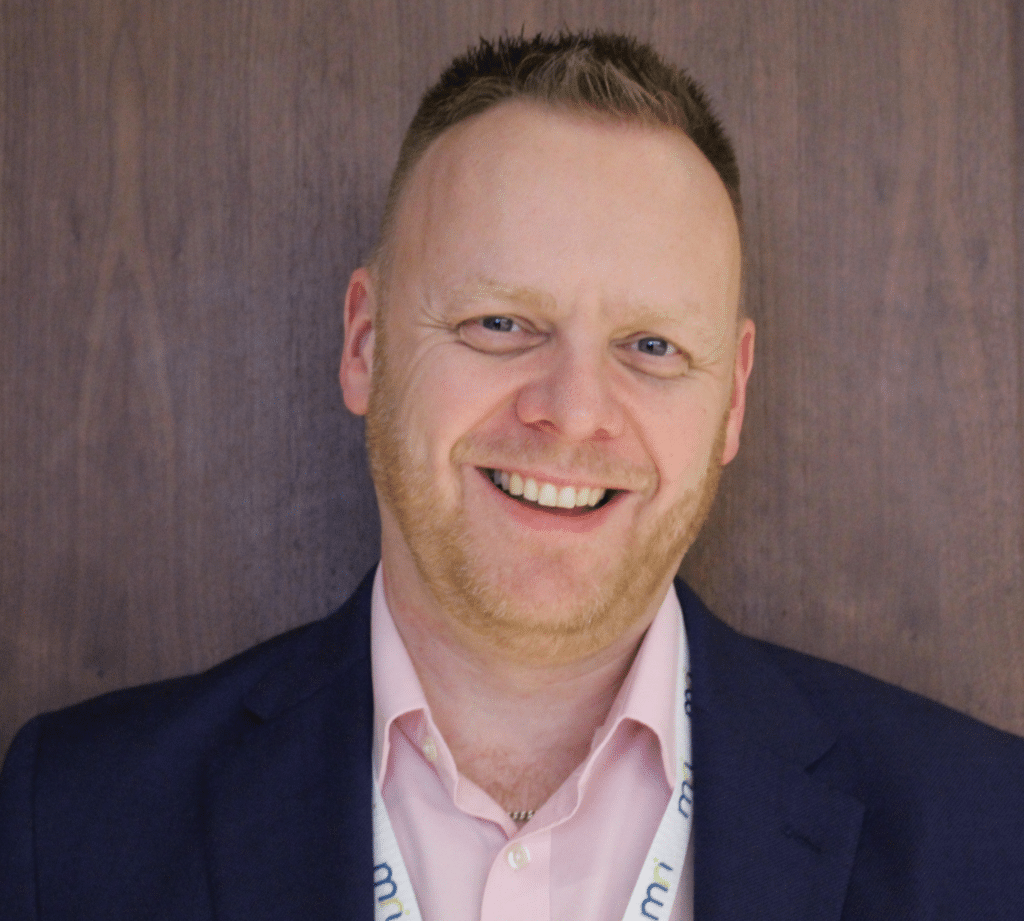The FM industry is ever-changing, always adapting to changing trends, global events such as the pandemic, and of course technology. Technology touches almost every aspect of life, and it evolves at such a rapid pace that it can be hard to keep up. Tech is being used more in the FM industry for a wide range of solutions, and in particular, to help FM businesses provide a more effective and user-friendly experience to their customers.
MRI Software is at the forefront of this. Supporting the FM and energy marketplace by providing all-encompassing solutions designed to streamline operations, maximise efficiency and meet sustainability goals, MRI is passionate about harnessing the power of tech for good. They are making real waves in terms of developing new technologies and solutions that actively help facilities managers do their job more efficiently and their building users enjoy better experiences day-to-day.
FM Director caught up with James Massey, MRI Software’s Managing Director of Facilities, Energy and Retail Intelligence, to find out more.
Can you tell me about your journey to the position of Managing Director of Facilities, Energy and Retail Intelligence at MRI Software?
I’ve been in this role since 2020 and came into the company through the acquisition of Castleton Technology, where I was COO. Before I worked at Castleton, I was with Capita Software Services for 13 years in a variety of roles including consultancy, sales and account management.
After MRI acquired Castleton, we decided to combine a number of products together through this, and other, acquisitions, including FSI. We wanted to bring together the various constituent parts of them that made up the FM business.
Since then we have added energy and retail intelligence into my role, as well as FM, because we see energy and retail intelligence as being part of a wider FM solution. Where energy traditionally used to sit in its own business area, it’s now evolved to be much more part of FM.
How has the Facilities Management sector changed since you began with MRI Software?
Number one is the continuing drive for far more efficiency, it’s never ending. We’re seeing more and more people pushing things to technology. They want tech to do more for them, and they want more readily available information.
Number two is the digitalisation of services. Almost everyone now has an app on their phone for everything – from booking a plumber to planning maintenance work. The classic concept of phoning someone to come and do a job is gone. People want to be as headless now as possible. If you want something, you use an app and someone turns up at your door before you’ve even spoken to anybody. More and more companies are doing that now and it will only become more apparent as we go forward.
Number three – and probably the most important – is speed to mobilisation. People no longer want to wait years for something to get done. We’re seeing people now happily piloting things like internet of things (IoT), energy monitoring and lots of similar solutions, whereas in the past it would have involved a huge project that would’ve taken years. Those days are gone; people want to do things much quicker now. However, on the flip side of that, people now need value recognition and benefit realisation far quicker than they used to.
Looking to the future, AI is going to play a big part in how the industry continues to change. As it becomes even more sophisticated, it will give us more prediction and more ‘what if’ scenarios that can be used to strengthen FM services.
You spoke recently at the MRI Software FM & Energy Leaders Forum about how technology is helping to create more sustainable, cost effective and efficient workplaces. Could you tell me about this please? How exactly is tech helping?
We’re keen to push the boundaries of technology, but we’re also keen to make sure anything we do is feasible. So, we went on a journey in our London office looking at the deployment of our own kit. We installed our own FM solution (MRI Evolution), energy monitoring product (MRI Energy), IoT framework (MRI IoT hub) and our footfall tracking cameras (MRI on Location). We also installed our presence management system which gives us the ability to track which staff are on site. Deploying these core products together has given us a phenomenal data set; we’re now able to see who’s in the office and how many people are on what floor or in which meeting room. We can also analyse the quality of assets: if something fails in a room you’re in, you can report it to the facilities team on your app.
We can also use these products to help us monitor energy usage. We can keep track of things like who’s in the building, how many people are in which areas, how long they’ve been there, whether the facilities in that space are in good condition and how much energy a specific area is using. Through this, we’re able to granularly learn how much energy is being used per area or floor. And through the use of IoT, we can also monitor air quality, temperature, humidity, luminosity and so on, giving us an overarching picture about how healthy the building is to be in. We’re passionate about offering our staff – and the staff of other organisations – healthy places to work and so our facilities team use our products to monitor that accordingly.
We also have a ESG strategy and part of that is understanding and being responsible about how much energy we’re using. We make sure that we’re as efficient as possible and as part of that we’re embarking on a programme to partially close down the office, based on demand. For example, our office is underutilised on Mondays and Fridays and so on those days we’re going close certain zones in the building. We’ve done similar things in the past very successfully and so there’s lots of potential there to explore.
How is MRI Software harnessing FM and energy teams to drive change towards a more sustainable future?
We now see energy and FM as a combined solution set, because an energy efficient facility is what everyone wants to drive towards – a reduction in greenhouse gases, net zero carbon – all those sorts of things. We try to report the unreported. Our energy solution gives facility managers the ability to monitor down to an individual asset level – for example, a HPAC unit or fridge – and then be able to report on it and trend analyse it. It’s a phenomenal power to have, enabling you to expose a lot of waste. We’ve saved several organisations a lot of money by identifying risk and issues in this way.
This combined eco system of FM and energy is also able to report a potential asset failure before it occurs. As our energy solution monitors an asset, such as a HPAC unit, should it detect any erratic energy usage, our energy solution tells the FM solution that there’s a fault. So, instead of the unit failing and the building users noticing that the room gets too hot, the two solutions work together to predict a failure before it happens. This is really powerful because we can start to get ahead of things before anything goes wrong and the users experience any inconvenience.
AI was one of the key discussion topics in the MRI Software FM & Energy Leaders Forum. In your opinion, how does AI help to deliver human-centric FM and enhance occupiers’ day-to-day experiences?
For me, it’s about looking at how we can make things headless, or as easy as possible, and how a system can start to make decisions for you. There are already lots of situations where AI is automating processes – chatbots for example.
Just a couple of examples of this at MRI, are some apps that can guide people on self-appointed repairs, and solutions that help inform tenants of a problem in a building before it affects them. To explain, imagine there’s a block of flats with 30 stories. Should the lift fail, it will automatically tell the FM system, which then informs the residents. Then, once the engineer has fixed the problem, they close the task in the system which then notifies the tenants that the lift is working again. This end-to-end ecosystem combines human interaction and human-centric FM to make people’s day-to-day lives better.
What more can be done to highlight sustainability issues in the FM industry? Are we doing enough in your opinion?
The industry’s doing its best and it is very conscious of sustainability issues because ultimately, FM providers’ customers demand green credentials. Of course there’s always more that everyone could do, and moving forward as the new Labour Government tells us more about what they want to put in place in terms of green policies, it will be interesting to see what happens over the next few months. Personally, I think if we can make businesses more efficient – dynamic route planning, energy monitoring, identifying technology or hardware failures etc – then we’re off to a great start.
Is there anything else you would like to add?
I’d love more conversations like this with FM leaders. We are very proud to have the customers and partners that we have; our customer list is phenomenal. We’ve got some great people in this business who are super passionate about what they do. They wake up every morning and think about FM and how tech can do more. I welcome people to challenge MRI to do more. We’re not an FM provider, we’re a software provider and we want to be challenged. Our product people, our consultants, our marketeers, we all want to see technology being used well.
However, it’s important to remember that technology isn’t the only answer. Not everything can be fixed by AI. Those coming in to FM have chosen a great career because it’s going to be around forever; people in this industry will never be replaced by robots because people will always need to see people. My main ask is that the sector challenges technology companies as much as possible because there is so much more that we could do with what we have.
For more information about MRI Software, please visit https://www.mrisoftware.com/




